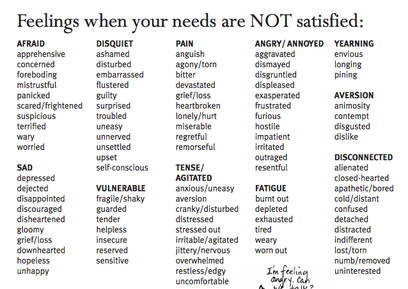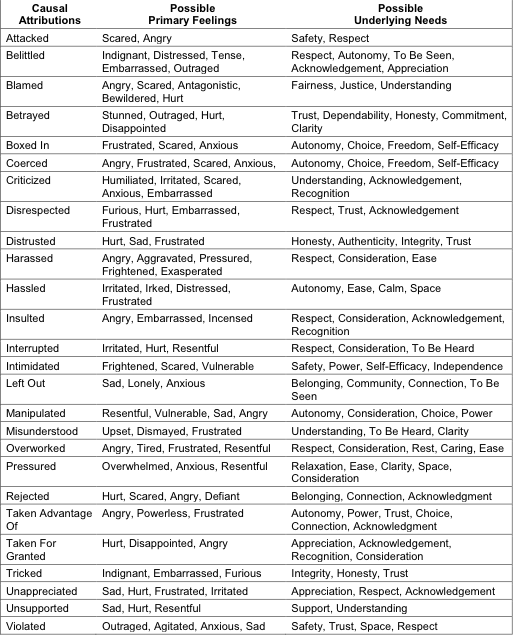Stress to Success: Week 6 - Communication
Improve Your Ability to be Understood & to Understand Others

For reflection - Signs that communication needs attention in your partnership
How does this show up on a fertility journey?
(alienation, isolation, couples problems get triggered under the stress of fertility, women are harder on themselves, men feel more helpless, vulnerability gets associated with lack of safety rather than tenderness, no one in the partnership feels "gotten" by each other, both partners want to connect but neither know how.)
Communication/Connection Foundations
Skill sets that supports more intimacy, connection, and ease (in specific relationships or in general):
Commonly Confused by Most Adults:
- Does your partner feel like you "get" them?
- When you think about giving to others, do you come from a place of "natural" or "obligatory" giving?
- Do you use fear, guilt, or shame to motivate yourself or others?
- Has your sexual connection with your partner suffered?
- Were your needs often unmet by your parents? (A word on attachment theory for adults)
How does this show up on a fertility journey?
(alienation, isolation, couples problems get triggered under the stress of fertility, women are harder on themselves, men feel more helpless, vulnerability gets associated with lack of safety rather than tenderness, no one in the partnership feels "gotten" by each other, both partners want to connect but neither know how.)
Communication/Connection Foundations
Skill sets that supports more intimacy, connection, and ease (in specific relationships or in general):
- compassionate internal dialogue, i.e. self empathy
- deep listening skills, no defensiveness, especially during intense exchanges
- awareness of intentions when speaking
- clarity - communicating so you're readily understood by others
- making clear and specific requests
- expressing feelings in a way that don't imply judgement, criticism, blame, or punishment
Commonly Confused by Most Adults:
- difference between a feeling and a thought - being able to identify and express internal feeling states in a way that does not imply judgment, criticism, or blame
- difference between an observation and an evaluation - being able to carefully observe what is happening free of evaluation, and to specify behaviors and conditions that are affecting us without assuming we know the reason for the behavior
- difference between a need and a strategy
- difference between a request and a demand (see below for more info)
Self Empathy 101
Why should I care about self empathy? Basis for self-compassion, calms nervous system, deactivates fight/flight stress response
What does it involve? Identifying your feelings and needs at any given moment
How do I start?
Why should I care about self empathy? Basis for self-compassion, calms nervous system, deactivates fight/flight stress response
What does it involve? Identifying your feelings and needs at any given moment
How do I start?
- Feelings: Make a list of any difficult feelings that have been up for you lately.
- Needs: Identify the needs that weren't being met when those feelings came up.
- Print up hard copies of the Feelings List and Needs List - most important skill to practice daily!
Your browser does not support viewing this document. Click here to download the document.
Examples of Feelings/Needs:
- I've been feeling isolated, edgy, and sad lately about my fertility journey. The needs not being met are: closeness, for other people to get what I'm going through (empathy), softness in my day-to-day (grace), and security that things are going to work out.
- I've been angry about all the other women in my world getting pregnant. Needs not being met are: inclusion, fairness, friendship, and mutuality.
- I'm so tired and lost these days. Needs not being met are: rest, self-care, safety, and trust that I'm on the right path.
Why is it helpful to focus on the positive need, versus just the bad feeling?
Note: Needs never pertain to a specific person (i.e. "I need my husband to listen" is not a need, in the way I'm teaching it here). Needs are the universal ideas that are common for everyone, such as a need to be heard, acknowledged, or listened to (in general).
Ways to get a need met once you've articulated it:
- Notice if what you identified is a chronically unmet need, or just a temporarily unmet one.
- Think of several ways to get it met. (We call these strategies.)
- Make some requests to specific people.
- Do some self-treatment with tapping, pledge spot, theta, etc. on any blame, traumas, or self-judgement.
Example
Feeling: Loneliness, separation, anxiety
Need: Inclusion, Friendship, Communion
Strategy Ideas: Reach out to friends, Self care, Call my mom
Specific Requests: (To a colleague) Bob, can we set up weekly phone check ins, 10 minutes about personal stuff and 30 minutes about business progress? (To a partner) Honey, I know you have a lot of work, but can we pick an evening this week for a date and do nothing else but spend it together?
Treatment Possibilities: tapping on old memories of being alone as a child; round of theta regarding a pattern of always retreating, instead of connecting, when upset
Reframing "Faux-Feelings"
You and Your Partner:
- Better communication allows for more connection.
- Once you're clear internally (what your feelings/needs are = self empathy) it's easier to be in a space where you can understand your partner, without getting defensive, triggered, etc.
- When your partner's upset, try not to gloss over it, ignore it, or let them get away with pretending their negative feelings are "no big deal" -- make an empathy guess! Make sure you know, by the end of the conversation, what their feelings/needs are in the moment. *Don't try to fix it.
- When they're angry, they're in pain. When they're critical, blaming, defensive... that's also your alert that they're in pain. Start with self-empathy if their anger triggers you, then see if you can get to the core of what their feelings/needs are. Giving them true empathy will be more effective, efficient, and less emotionally draining than the argument de jour.
- Guessing what feelings or needs are up for them:
~ Allow them time to sit with your idea, and clarify for themselves their feelings/needs
~ Keep the focus on them, not whatever gets stirred up in you
~ Invite them to make a request, then grant it only if you're a genuine "yes" -OR-
~ Ask if they are now ready to hear what's been sparked in you
A "Good" Request
- specific time-frame
- behavioral & concrete
- invites honesty (unattached to outcome; you're ready for a "no" or a counter-offer)
- differentiates "connecting" v. an "action"
Want more? Preview some other resources/links here:
- Chapter 1 of Non-Violent Communication, by Marshall Rosenberg. Preview: "Believing that it is our nature to enjoy giving and receiving in a compassionate manner, I have been preoccupied most of my life with two questions. What happens to disconnect us from our compassionate nature, leading us to behave violently and exploitatively? And conversely, what allows some people to stay connected to their compassionate nature under even the most trying circumstances? My preoccupation with these questions began in childhood, around the summer of 1943, when our family moved to Detroit, Michigan. The second week after we arrived, a race war erupted over an incident at a public park..."
- "Fertility Communication Prompts" - Article on Boundary Setting, Calling Someone Out - Nicely, etc.
- "Getting Him to GET You" - Article on Communicating With Your Partner


